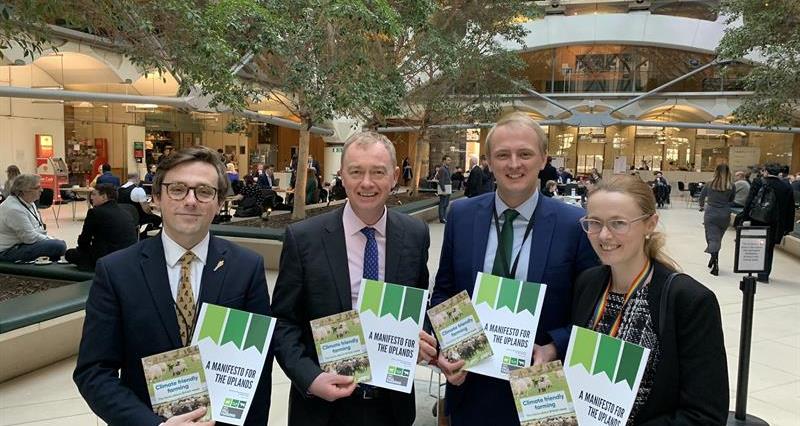Tim Farron highlighted to Defra minister George Eustice hill farmers’ concerns that the plan to phase out the basic payment scheme before the environmental management scheme would be delivered could result in significant reductions in income.
He called for the Groceries Code Adjudicator’s remit to be widened to consider the whole supply chain and act on referrals from advocates.
George Eustice said getting a tariff-free quota on lamb would be a high priority when establishing a new trade deal with Europe and new markets in the rest of the world and that the Agriculture Bill would ensure grants and payments are provided to help farmers improve their productivity.
He also revealed that the Bill would allow farmers who wish to retire now to receive several years’ payments in a lump sum and give the Government powers to modify the legacy scheme and simplify some rules around the basic payment scheme.
Thomas Binns, uplands forum chairman, said: “This debate has given MPs an opportunity to voice our concerns over securing the right trade outcome for hill and uplands farmers before the Brexit transition period.
“During this period of uncertainty, it is imperative that every measure is taken to make sure businesses that deliver so much public good are protected from market volatility.
“We must be able to continue feeding our population, developing biodiversity and protecting population centres from flood risk whilst running profitable farming businesses and, to do this, enough infrastructure must be in place to provide quick, efficient and fair payments on time.
“Hill and upland farmers must be involved in the development of future policy to allow productive, profitable agriculture alongside maintaining and enhancing our natural environment. The NFU will continue to its work engaging MPs on the most important issues affecting hill farmers and calling for a sufficient transition period as we move away from the CAP and towards environmental land management schemes that ensures farmers are able to plan ahead and prepare financially.”
